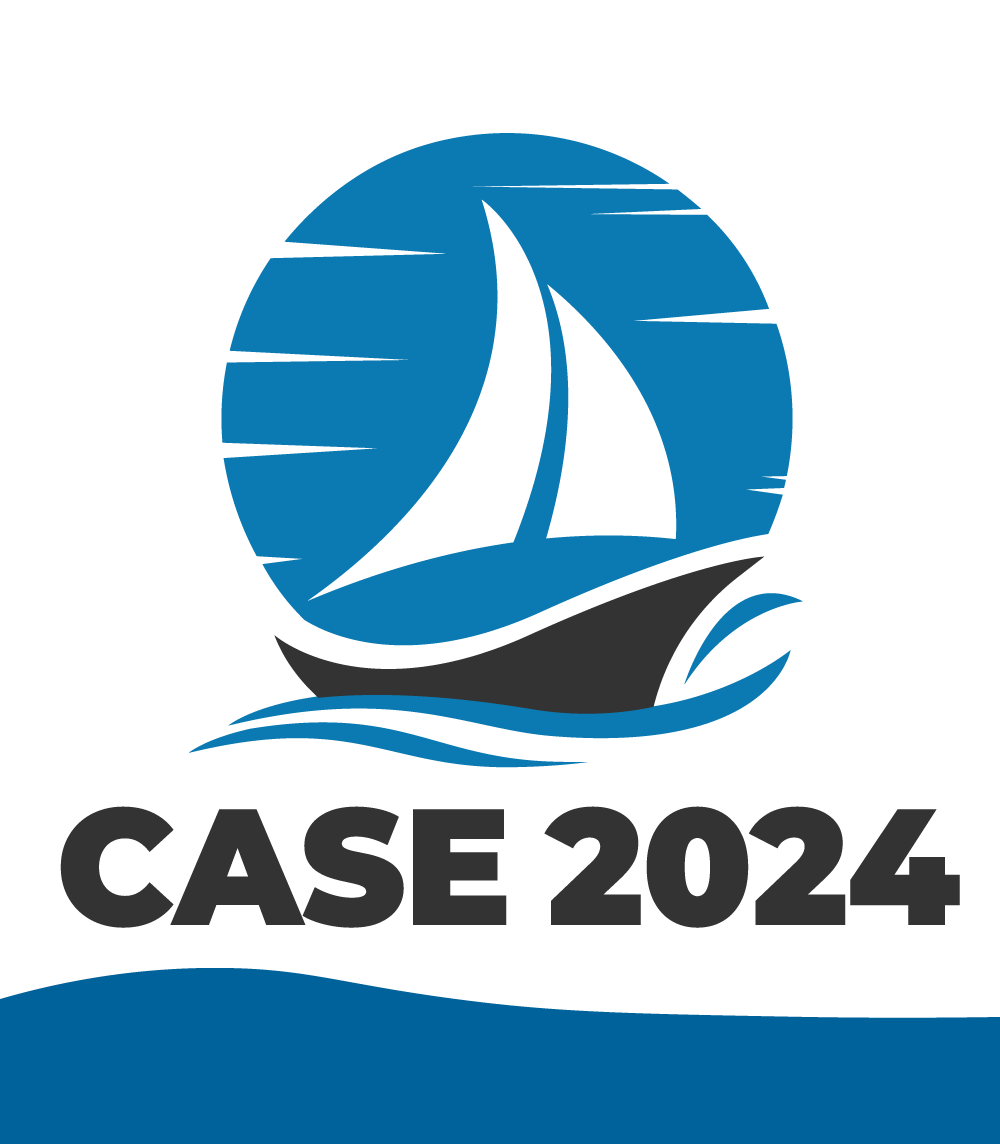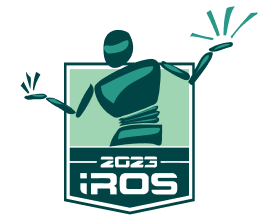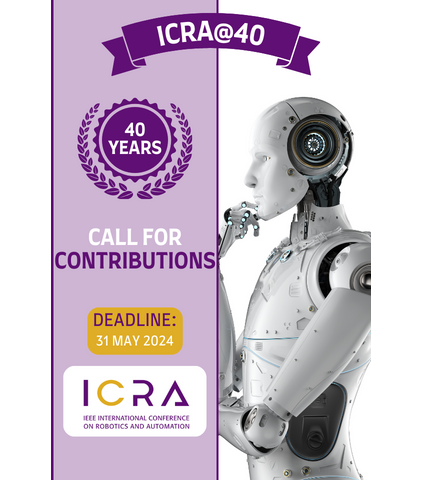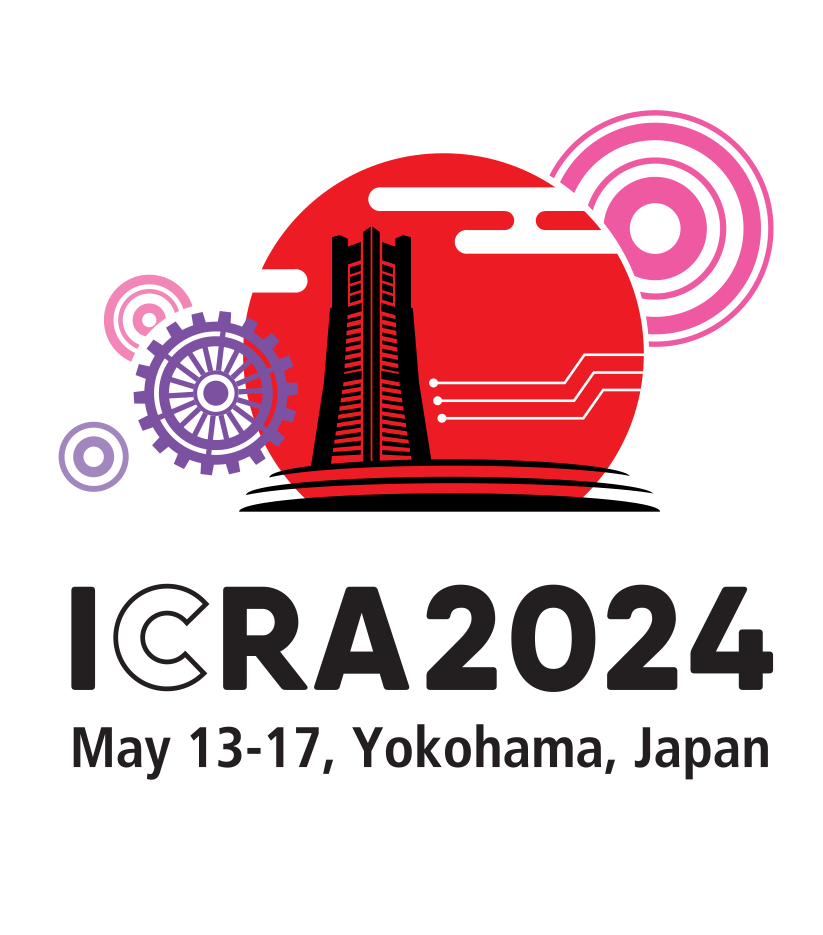Latest News
Aurora Schmidt & Marin Kobilarov, "Verified Assured Learning for Unmanned Embedded Systems (VALUES)"
Ali Narenji Sheshkalani, "Verification of visibility-based properties on multiple moving robots in an environment with obstacles"
If you wish to attend this seminar please join the IEEE TC mailing list on our webpage- https://www.ieee-ras.org/verification-of-autonomous-systems
The IEEE Robotics and Automation Society membership will elect six new members of the Administrative Committee in 2021, each to serve a three-year term beginning 1 January 2022. The AdCom is the governing body of the Society.

RESPONSIBILITIES OF ADCOM MEMBERS
AdCom members must attend two formal meetings each year, one in conjunction with ICRA and the other usually in October/November in conjunction with another major conference. Each AdCom member is expected to serve on at least two boards and/or committees of the Society.
ELIGIBILITY
Any higher-grade member of the Society is eligible to serve and all higher-grade members plus graduate students may nominate candidates and vote.
TO NOMINATE A CANDIDATE
To nominate a candidate or offer yourself as a candidate, contact the Society at ras@ieee.org by 1 May 2021.
PETITION CANDIDATES
Candidates may also petition to be on the ballot. All persons who, by the deadline, submit petitions with valid signatures and IEEE member numbers with at least 2% of the year-end voting membership will be placed on the ballot. Only original signatures on paper or electronic signatures submitted through the RAS petition website will be accepted. Faxed or emailed signatures are NOT acceptable. Contact the Society at ras@ieee.org to obtain a paper petition form or to set up an electronic petition.
Completed petitions must be received by 1 May 2021 to be placed on the ballot.
SELECTION OF FINAL BALLOT
The Nominations Committee will consider all nominations and petitions and select the candidates to be placed on the ballot.
The IEEE Robotics and Automation Society membership will elect six new members of the Administrative Committee in 2022, each to serve a three-year term beginning 1 January 2023. The AdCom is the governing body of the Society.

RESPONSIBILITIES OF ADCOM MEMBERS
AdCom members must attend two formal meetings each year, one in conjunction with ICRA and the other usually in October/November in conjunction with another major conference. Each AdCom member is expected to serve on at least two boards and/or committees of the Society.
ELIGIBILITY
Any higher-grade member of the Society is eligible to serve and all higher-grade members plus graduate students may nominate candidates and vote.
TO NOMINATE A CANDIDATE
To nominate a candidate or offer yourself as a candidate, contact the Society at ras@ieee.org by 1 May 2022.
PETITION CANDIDATES
Candidates may also petition to be on the ballot. All persons who, by the deadline, submit petitions with valid signatures and IEEE member numbers with at least 2% of the year-end voting membership will be placed on the ballot. Only original signatures on paper or electronic signatures submitted through the RAS petition website will be accepted. Faxed or emailed signatures are NOT acceptable. Contact the Society at ras@ieee.org to obtain a paper petition form or to set up an electronic petition.
Completed petitions must be received by 1 May 2022 to be placed on the ballot.
SELECTION OF FINAL BALLOT
The Nominations Committee will consider all nominations and petitions and select the candidates to be placed on the ballot.

The IEEE DataPort Spring Dataset Upload Contest is now open! Entering is easy: upload datasets of any file type up to 2TB in March or April to be eligible to win an iPhone, iPad, or Apple Watch.
The dataset upload contest is designed to encourage authors and researchers to bring their research to the forefront of the global technical community through IEEE DataPort. Anyone who uploads a dataset to IEEE DataPort between 1 March 2021 at 12:00 am EST and 30 April 2021 at 11:59 pm EDT, will also have the opportunity to enter the spring dataset upload contest for a chance to win the prizes listed below.
When uploading standard or open access datasets to IEEE DataPort during this time, users will be prompted to review and agree to the official rules of the contest. If you agree, that’s all you need to do to enter!
For more information- https://ieee-dataport.org/dataset-upload-contest
IEEE CASE, the annual Conference on Automation Science and Engineering, is a major IEEE conference that is one of three fully-supported IEEE conferences in our field (with ICRA and IROS). In 2021, CASE will be held 23-27 August. It will be hybrid, with a live component in Lyon France and an online component:
"To meet the demand of the scientific community for stimulating exchanges and a real conference experience for young researchers, CASE2021 aims to be primarily a face-to-face conference with online participation for those who cannot travel to Lyon."
IEEE CASE was founded in 2006 so is smaller but growing quickly. The acceptance rate for the last CASE was about 56%, slightly higher than ICRA 2021 (48%), IROS, and RSS. IEEE CASE continues the classic conference model of featuring a 10-15 min oral presentation of each paper in contrast to poster sessions. This is particularly exciting for students, who get the valuable experience of lecturing and fielding questions in front of an audience of peers. IEEE CASE also has a tradition of spotlighting papers nominated for awards such as Best Paper, Best Student Paper, etc. Each nominated paper is presented in special single session track on Day 1, where everyone at the conference attends and there is a lively Q&A led by judges.
Good luck with Plan B and hope to see you at one or more of these conferences!
The IEEE Technical Committee on the Verification of Autonomous Systems invites you to attend our monthly online Seminar Series. The next seminar will take place on 4 March 9:00 EST, 14:00 GMT. The program is as follows:
Tom Freund, "Urban Air Mobility: Verifying trust"
Liren Yang, "Synthesis-guided Adversarial Example Generation for Gray-box Autonomous Systems with Sensing Imperfections"
We are currently holding a monthly Verification of Autonomous Systems Seminar Series via Zoom on the first Thursday of each month. If you would like to receive invitations and information about this series, please SIGN UP to be a part of our Technical Committee.
Our online seminar series features presentations from TC members at both introductory and advanced levels. If you would like to present, please contact the TC Co-Chairs for more information.
The IEEE Robotics & Automation Society recognizes and congratulates the following individuals for their outstanding accomplishments and service to RAS and the robotics and automation community. They will be honored during a virtaul award ceremony, to be held during the IEEE International Conference on Robotics & Automation (ICRA 2021) in early June. Please join us in congratulating these outstanding recipients!
CALL FOR PAPERS IEEE TRANSACTIONS ON AUTOMATION SCIENCE AND ENGINEERING
Special Issue on the 2020 IEEE International Conference on Automation Science and Engineering (CASE2020)
The 16th annual IEEE International Conference on Automation Science and Engineering (CASE 2020) was held on August 20-21, 2020, virtually, jointly organized by HKU (The University of Hong Kong) and HKUST (Hong Kong University of Science and Technology). IEEE CASE is the flagship automation conference of the IEEE Robotics and Automation Society and constitutes the primary forum for crossindustry and multidisciplinary research in automation. Its goal is to provide a broad coverage and dissemination of foundational research in automation among researchers, academics, and practitioners. It was the first time the CASE conference was held online (through Zoom meetings), due to impacts of the COVID-19 pandemic. The theme of the conference was Automation Analytics. The technical program included 2 keynote speeches, 5 workshops and over 250 presentations split into several parallel sessions. This special issue is by invitation only.
Congratulations to the IEEE Robotics and Automation Society members recently elevated to Senior Member status by the IEEE Admission and Advancement Senior Member Review Panel.
Small-Scale Robotics inside the Human Body
Robots can aid the physician in several aspects: assisting diagnostic and surgery, performing a biopsy,Robots can aid the physician in several aspects: assisting diagnostic and surgery, performing a biopsy,dispensing medication, visualizing enclosed spaces inside the body, etc. More recently, there has been a rising interest in the miniaturization of these robots for less and less invasive or even non-invasive surgery. These miniaturized medical robots will allow making it possible to break down certain barriers related to the size and accessibility of some areas of the human body (vessels, arteries, deep intrapulmonary pathways, etc.). Such systems may provide many advantages, such as limited invasiveness, reduced trauma, or carrying outoperations beyond the limits of the human precision or sensing abilities.
Join the RAS Technical Committee on Soft Robotics in upcoming debates and participate with different controversial topics in Soft Robotics, such as future and potential impact, real-world deployment, morphological computation vs. traditional control methods, etc., are frequent subject of debates. General community can benefit from making these debates more formal and publicly available. Debates are 80 minutes long with 4-6 participants and a moderator from recognized experts in the field.
Upcoming Event:
"Bioinspired vs. Biohybrid Design"
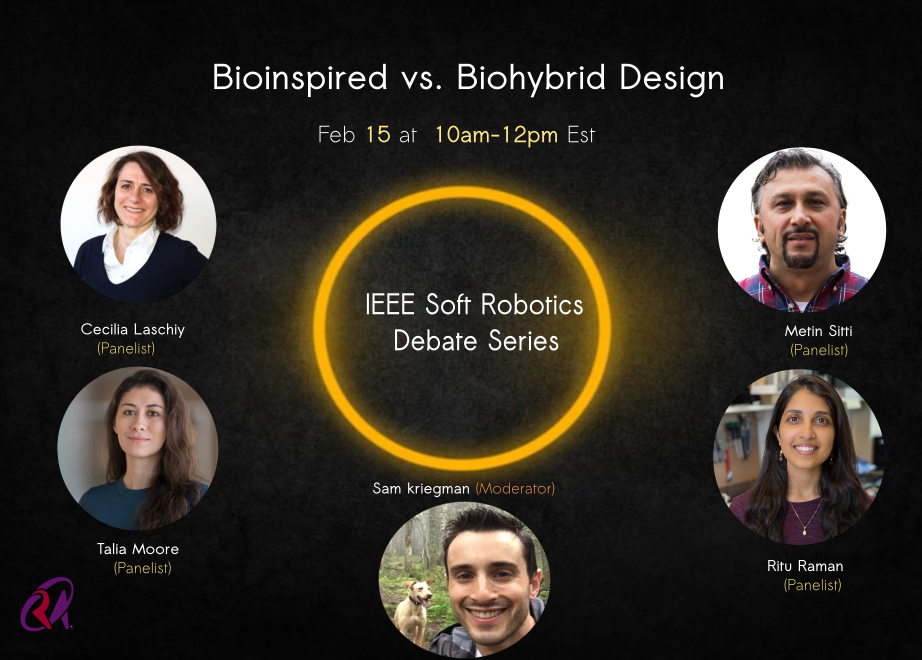

IEEE RAS Summer School on Reproducible Research, Performance Evaluation and Benchmarking in Robotics 2021- Virtual Preparation Event
Date: 1-5 February 2021
Location: Free virtual event
Congratulations to all International Conference on Intelligent Robots and Systems (IROS 2020) award recipients! Due to the virtual nature of the event, we are saddened that these individuals could not be recognized in person.
IROS Toshio Fukuda Young Professional Award
Ka Wai KWOK
“For contributions to the advancement of MRI guided robotic systems”
IROS Best Paper Award
SwingBot: Learning Physical Features from In-Hand Tactile Exploration for Dynamic Swing-Up Manipulation
Chen Wang, Shaoxiong Wang, Branden Romero, Filipe Fernandes Veiga and Edward Adelson
IROS Best Student Paper Award
Computational Design of Balanced Open Link Planar Mechanisms with Counterweights from User Sketches
Takuto Takahashi, Hiroshi G. Okuno, Shigeki Sugano, Stelian Coros and Bernhard Thomaszewski
Congratulations to all award recipients of IEEE International Conference on Automation Science and Engineering (CASE 2020)! Due to the virtual nature of the event, we are saddened that these individuals could not be recognized in person.
IEEE CASE Best Conference Paper Award
Long-Short Term Spatiotemporal Tensor Prediction for Passenger Flow Profile
Ziyue Li, Hao Yan, Chen Zhang, and Fugee Tsung
IEEE CASE Best Application Paper Award
A system for human-in-the-loop simulation of industrial collaborative robot applications
Maximilian Metzner, Daniel Utsch, Walter Matthias, Christian Hofstetter, Christina Ramer, Andreas Blank, and Jörg Franke
IEEE CASE Best Student Paper Award: TWO Recipients this Year!
Large-Workspace and High-Resolution Magnetic Microrobot Navigation Using Global-Local Path Planning and Eye-in-Hand Visual Servoing
Lidong Yang and Li Zhang
Simulating Polyculture Farming to Learn Automation Policies for Plant Diversity and Precision Irrigation
Yahav Avigal, Jensen Gao, William Wong, Kevin Li, Grady Pierroz, Fang Shuo Deng, Mark Theis, Mark Presten and Ken Goldberg
Congratulations to all award recipients of IEEE International Conference on Robotics and Automation (ICRA 2020)! Due to the virtual nature of the event, we are saddened that these individuals could not be recognized in person. A complete RAS and ICRA Award brochure is available. It also contains IEEE and RAS Award recipients, plus all ICRA Best Paper Award Finalists.
Congratulations to the six RAS members elected by the membership to serve a three-year term beginning 1 January 2021. We wish the newly elected members of the Administrative Committee success and thank all candidates for their willingness to serve and for permitting their names to be included on the ballot.
IEEE/IFR Innovation & Entrepreneurship Award for Outstanding Achievements in Commercializing Innovative Robot and Automation Technology
|
IEEE/IFR Joint Forum on Innovation and Entrepreneurship in Robotics and Automation (IERA) June 2021 |
www.ieee-ras.org |
www.ifr.org |
Deadline for applications: 28 February 2021
Nowadays, research on shared autonomy systems is playing a relevant role in a wide spectrum of robotic applications ranging from surgical to industrial robotics. Recently, the availability of datasets and the advancement of machine learning techniques have enabled enhanced flexibility of shared autonomy systems that are now capable of providing contextual or personalized assistance and seamless adaption of the autonomy level. However, this desirable trend raises new challenges for safety and stability certification of shared autonomy robotic systems, thus requiring new advanced control methods to implement the continuously evolving division of roles.
The 2020 Award for Innovation and Entrepreneurship in Robotics & Automation (IERA) goes to Photoneo’s high resolution MotionCam-3D. This 3D scanner captures quick moving objects and delivers the sharpest eyes in the world for industrial robots.
“The jury is pleased to announce the selection of Photoneo’s Motion Cam-3D as the winner of the 16th IERA Award,” says Jury Chair Robert Ambrose from IEEE-RAS. “The award celebrates the combination of innovative concepts with entrepreneurial efforts to bring those ideas to market. This year’s winner is a novel 3D imaging system merging the benefits of both stereo vision with structured light approaches to yield a fast and accurate perception system with applications in society and industry.”
Eyes for robots that spot submillimeters
"MotionCam-3D gives eyes to robots with the highest resolution and accuracy in the world” said Jan Zizka, CEO of Bratislava-based maker Photoneo. "Our camera is able to inspect objects moving as fast as 140 kilometres per hour. Its qualities are useful in various fields: e.g. in e commerce and logistics, for object sorting and autonomous delivery systems. The camera also helps in food processing and waste sorting as well as harvesting in agriculture. Thanks to accurate machine vision, robots can also analyse objects with high resolution images, which is important in quality control”.
Recent events, such as the spread of the COVID-19 pandemic, have shown the extreme importance of industrial processes that are fully or partially automated, thus allowing the production and the work in (smart) factories during events that can affect the production. In the smart factory, robots - which are becoming more and more advanced and adaptive to the surrounding environment and to external stimuli and which have improved their mobility and their learning capacity - can be employed in more difficult and demanding tasks such as quality control and process automation. The deployment of Automation and Robotics and of I4.0 key technologies in smart disassembly, recycling and enhancing waste materials obtained from production processes is radically changing the way to conceive and manufacture products and at the same time it is enhancing workers’ safety and health conditions.



